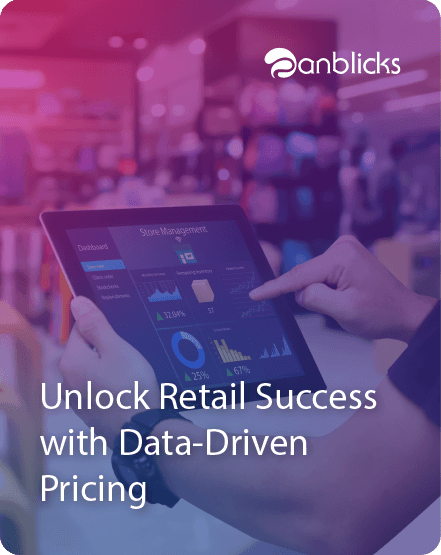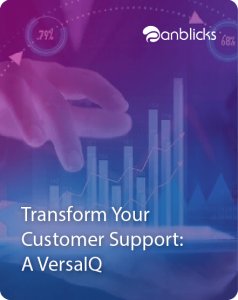
Why is Azure DevOps Automation important in AI systems?

TL;DR
- Explores how Azure DevOps automation streamlines AI development processes.
- Discovers the role of continuous integration in AI project collaboration.
- Uncovers ways automation enhances scalability in complex AI workflows.
In the digital era, based on various market research reports and analyses, different industries have started to invest in AI technology which will increase investments in AI-enables applications and systems for different use-cases in upcoming years.
In the multi-national technology platform, Amazon created and popularized modern cloud computing with Elastic Compute Cloud service in 2006. Also, various delivery models were introduced, like Infrastructure as a Service (IaaS), PaaS (Platform as a Service), and SaaS (Software as a Service), which are used for AI workloads. Also, there are various cloud deployment models: Public, Private, and Hybrid, which locate AI workload based on functional and non-functional requirements and constraints.
According to marketsandmarkets report, Azure DevOps is the highest priority for business leaders and until 2025 to drive faster time to market. The DevOps market size is expected to grow from USD 2.90 Billion in 2017 to USD 10.31 Billion by 2023, at a Compound Annual Growth Rate (CAGR) of 24.7% during the forecast period. The demand for DevOps solutions and services among enterprises is expected to gain huge traction due to the increasing need for fast application delivery with high quality. The base year considered for this study is 2017, and the forecast period is 2018–2023.
In the cloud computing environment, Azure DevOps addresses the application development lifecycle by performing various practices that combine software development (Dev) and IT operations (Ops) in the Azure Cloud. Developing a disciplined AI engineering process is key. AI engineering incorporates elements of DataOps, ModelOps, and DevOps. According to Gartner, it makes AI a part of the mainstream Azure DevOps process rather than a set of specialized and isolated projects.
Why adopt Azure DevOps on AI Systems?

Were you feeling the pressure to bring more business value at an increasingly fast rate? In a powerful complement to Azure DevOps, AI automatically layers AI-powered monitoring that helps stand out alerts on individual metrics throughout the software development lifecycle.
AI, DevOps Automation, and monitoring assist the management of complex modern software delivery CI-CD pipeline and helps build. Repercussion into deployment for better performance and faster time-to-market. The focusing area after adopting AI in the Azure DevOps automation service pipeline is:
- Quality continuous delivery – Deliver code to production with no manual intervention
- Monitoring – AI-enabled integration & monitoring in CI-CD pipeline for higher visibility across azure-DevOps toolchain.
- Enable on-demand testing at every quality gate within a DevOps pipeline for advanced debugging purposes.Operations – Enabling self-debugging cloud application by moving from manual run to “operations-as-a-code.”
How does the Azure DevOps pipeline work?
Azure DevOps pipeline enables the DevOps framework by providing version control, requirements and project management, automated builds, testing, and release management capabilities. It follows the software application lifecycle. Here is a brief of various components to build a DevOps automation pipeline with Azure:
- Azure Boards: It helps manage software product development with customized tools throughout the SDLC. It also helps efficiently support a set of capabilities for agility, Scrum, dashboards, and integrated reporting.
- Azure Pipelines: It helps automate the entire CI-CD pipeline from build to deployment stages for consistent and reliable workflow. With Microsoft Azure software like Microsoft-hosted Linux, macOS, and Windows, DevOps engineers easily manage hardware and VMs.
- GitHub and Azure: With a GitHub account, developers move code to deployment in less interval of time. Also, Azure-based DevOps automation can be seamlessly integrated for deployments to Azure Kubernetes Services, Web Apps, SQL Database, Azure Functions, and more.
- Azure Test Plans: It provides different kinds of testing such as manual testing, user acceptance testing, exploratory testing, and more.
- Azure Monitor: It helps in the storage and management of data by maximizing visibility, performance, and availability of all applications across the DevOps pipeline.
How does Azure-based DevOps automation work on AI systems?
In the digital transformation, to revolutionize DevOps productivity and enterprise’s consistent growth efficiency, there are multiple ways AI accelerates Azure DevOps automation workflow.
- With AI-enabled Azure DevOps automation workflow, generate greatest gains in productivity and accuracy. Also, Azure-DevOps’ development tools are used with supervised machine learning algorithms for quick response to code requests in real-time.
- Azure DevOps teams use AI and ML-powered requirements management platforms that help understand requirements with accuracy and quality at the right time that helps develop an app or platform in the next generation.
- Azure DevOps team using AI-enabled bug detection tool (CodeQL), which helps in faster bug detection and auto-suggestions for improving code.
- In the Azure-enabled DevOps pipeline, AI helps in auto-generating and auto-running test cases based on the unique attributes of a given codebase by improving overall product quality.
- At a leading supply chain management (SCM), Azure-DevOps teams use AI to analyze how some projects deliver excellent codes faster to market. This helps projects in gaining analytics insights into their data.
What are the Azure-based DevOps pipeline tools for AI systems?
- Source-control repository: The DevOps team stores, manage and controls all framework, codes, and other AI pipeline artifacts throughout the CI-CD pipeline. It is also a collaboration hub, where pipeline artifacts are shared and used for development and product operations.
- Data lake: Here, the DevOps team store, aggregate, and create data for use in framework and training throughout the AI DevOps (CI-CD) pipeline. It helps store multi-structured data by AI developers to facilitate data used in the models.
With an efficient approach, DevOps engineers can smoothly help in adopting Azure-based DevOps framework at even higher levels of speed deployment quality assurance in AI systems.
Anblicks has a team of Microsoft Azure certified professionals that can help you optimize your Azure-enabled DevOps automation process. We can help you with an Automation-first approach, leveraging a combination of infrastructure orchestration and Azure DevOps tools into cloud-ready apps for faster Development and Delivery Cycles in various applications and industries like financial services, healthcare, retail, NGOs, and many more.

As a part of the Marketing team at Anblicks, Komal Saini focuses on developing, implementing, & managing innovative Inbound, Outbound, and Partner marketing initiatives. She holds an engineering degree in Computer Science. Her hobbies include gaming, digital gadgets, and traveling.



